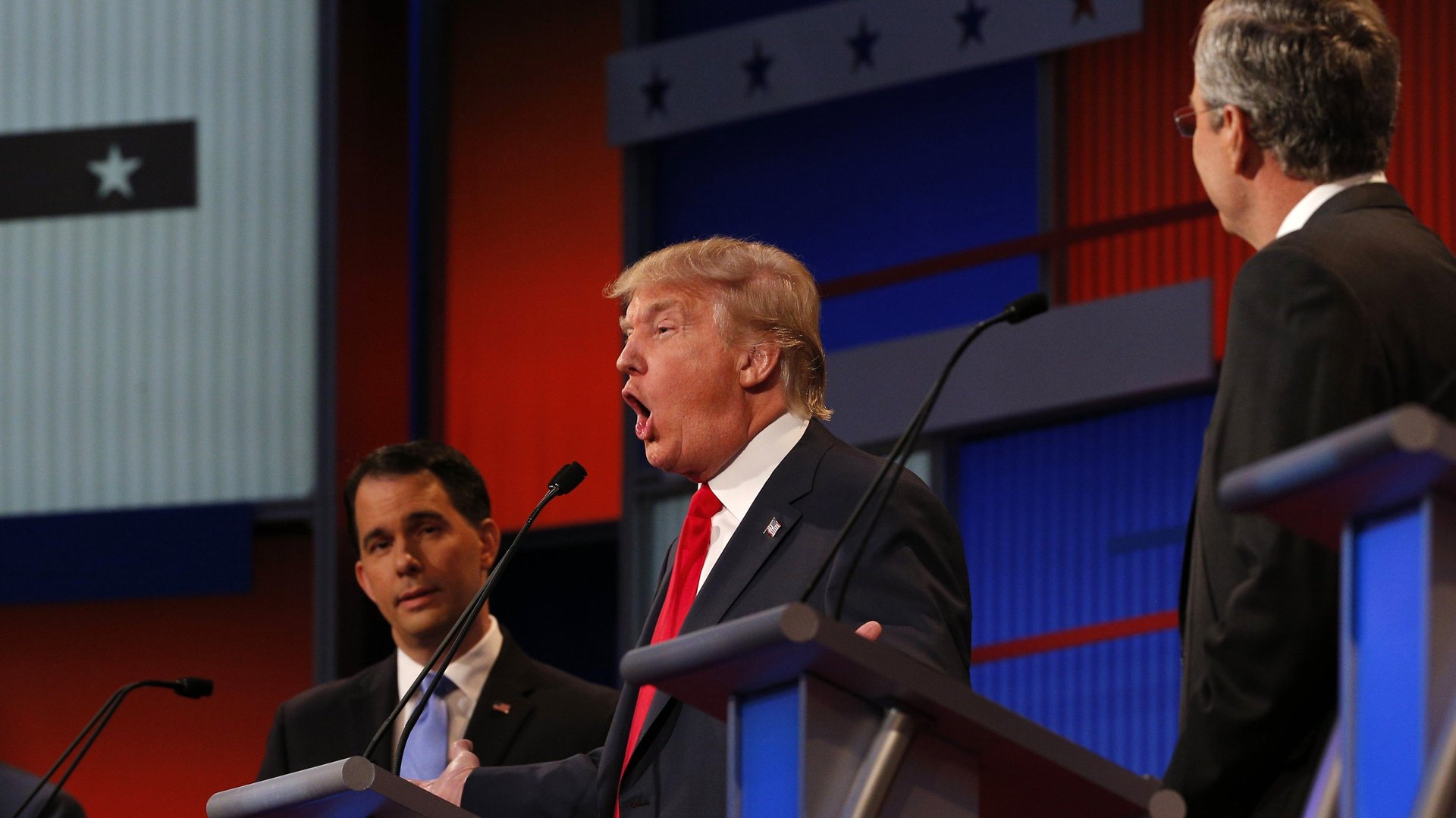A non-American tries to understand Donald Trump’s mastery of the Republican presidential debate, and fails miserably
Within a few minutes of the start of tonight’s Republican presidential debate, it was clear that Donald Trump—the blond-thatched, buffoonish tycoon who seems to revel in saying the most absurd things he can—was winning.


Within a few minutes of the start of tonight’s Republican presidential debate, it was clear that Donald Trump—the blond-thatched, buffoonish tycoon who seems to revel in saying the most absurd things he can—was winning.
He was winning despite admitting right at the outset that he would sooner hand victory to the Democrats than promise not to run as an independent, thereby splitting the conservative vote:
He was winning despite insulting women:
Despite talking demonstrable nonsense:
Despite the fact that everyone on Twitter hated him:
And despite the fact that the Fox News interviewers kept trying to undermine him:
How did we know he was winning? Because the debate was all Trump, all the time. He was far ahead of the other nine candidates in speaking time. He scored more headlines as the debate wore on. And time after time, his outrageous comments elicited loud cheers (though often a lot of boos too).
To a Brit watching the debate, it was baffling. The Fox interviewers asked tough, serious questions of all the candidates. They challenged them to justify hardline positions on abortion, gay marriage and immigration, seemingly recognizing that many centrist Republican voters no longer support some of the party’s traditional stances on such issues. And some of the candidates gave serious answers. But Trump consistently stole the show.
I asked my American colleagues in our online chat: What’s the appeal of Trump? Here were some of their answers:
- Trump’s actual views are less extreme than some of his rivals—it’s just that he sounds crazy because of the way he speaks.
- Americans don’t see this as a debate, but a reality show, and Trump is the star, because he is a great comedian.
- Trump taps into a vein of dissatisfaction among Republican voters who have seen the country change into something they do not recognize, like or understand. They don’t care about his irrationality, incoherence and inconsistency, because politicians who have sounded rational, coherent and consistent haven’t helped them.
- Democrats laugh at him; Republicans laugh with him; either way, he steals the show.
- Trump isn’t electable, and early polling is notoriously unreliable anyway. The debate isn’t about who will be the Republican nominee—it’s purely a form of entertainment.
Ultimately, I’m still baffled. Perhaps the best way to understand Trump is not as a candidate, but as a warm-up act who somehow got slotted in with the main event—a way to keep the audience watching, while the real discussion went on around him. At least, for the sake of America’s political health, I hope so.